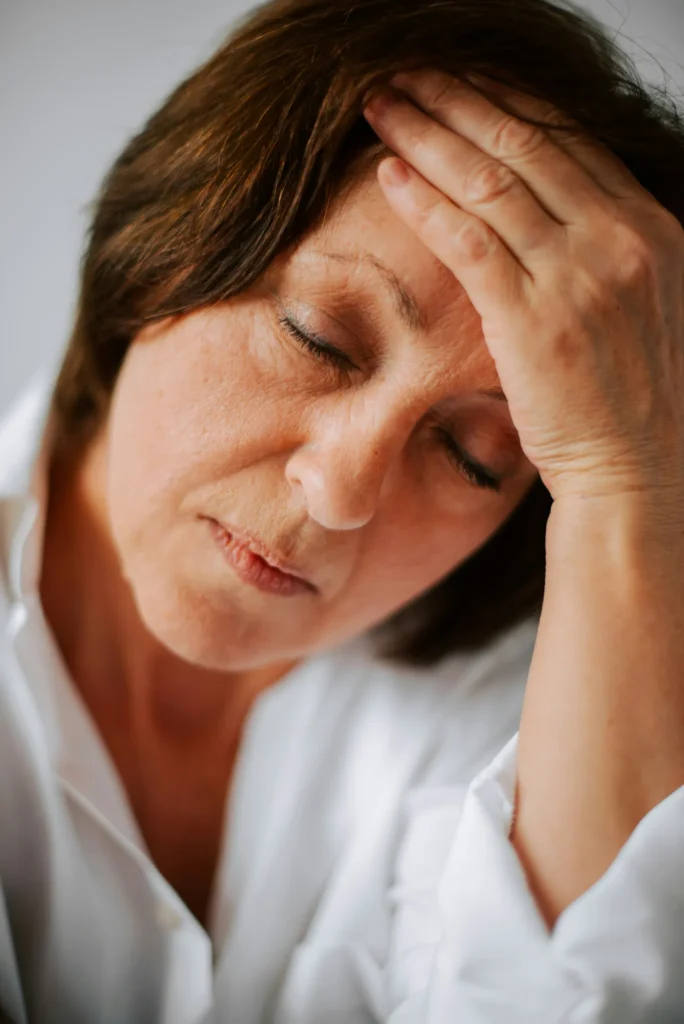Navigating Menopause: Expert Advice for Women
Menopause is a natural biological process that all women go through as they age. It marks the end of a woman’s menstrual cycles and fertility, signaling the transition from the reproductive years to the post-reproductive years. While menopause is a normal part of aging, it can come with a range of physical and emotional symptoms that can be challenging to navigate. In this article, we will explore what menopause is, the symptoms associated with it, and provide expert advice on how women can manage their menopausal symptoms effectively.
What is Menopause?
Menopause is a natural biological process that typically occurs in women between the ages of 45 and 55 years old. It is defined as the absence of menstrual periods for 12 consecutive months, marking the end of a woman’s reproductive years. Menopause occurs when the ovaries stop producing estrogen and progesterone, the hormones responsible for regulating the menstrual cycle and supporting fertility.
The transition into menopause, known as perimenopause, can last for several years before menopause is officially reached. During perimenopause, women may experience irregular periods, hot flashes, night sweats, mood swings, and other symptoms associated with hormonal fluctuations. Once menopause is reached, these symptoms may continue or worsen, leading to a range of physical and emotional challenges for women.
Common Symptoms of Menopause
Menopause can bring about a variety of symptoms that can impact a woman’s quality of life. Some of the most common symptoms of menopause include:
1. Hot flashes: Sudden feelings of intense heat that can cause sweating and flushing of the skin.
2. Night sweats: Episodes of excessive sweating during sleep that can disrupt sleep patterns.
3. Vaginal dryness: Decreased lubrication in the vaginal area, leading to discomfort during intercourse.
4. Mood swings: Emotional fluctuations that can range from irritability to depression.
5. Sleep disturbances: Difficulty falling asleep or staying asleep, leading to fatigue and exhaustion.
6. Weight gain: Changes in metabolism and hormonal fluctuations can lead to weight gain, particularly around the abdomen.
7. Loss of libido: Decreased interest in sexual activity due to hormonal changes and physical discomfort.
8. Memory problems: Difficulty concentrating and remembering things, often referred to as “brain fog.”
9. Bone loss: Decreased estrogen levels can lead to a loss of bone density, increasing the risk of osteoporosis.
Managing Menopausal Symptoms
While menopause is a natural process that all women will experience, there are ways to manage the symptoms associated with it effectively. Here are some expert tips on how women can navigate menopause with grace and ease:
1. Stay active: Regular exercise can help alleviate symptoms of menopause, including hot flashes, mood swings, and weight gain. Aim for at least 30 minutes of moderate-intensity exercise most days of the week.
2. Eat a healthy diet: A balanced diet rich in fruits, vegetables, whole grains, and lean proteins can help support overall health during menopause. Avoiding processed foods, sugary snacks, and excessive caffeine can also help manage symptoms.
3. Stay hydrated: Drinking plenty of water can help combat symptoms like hot flashes and night sweats. Aim for at least eight glasses of water per day to stay hydrated and support your body’s natural functions.
4. Practice stress management: Menopause can be a stressful time for many women, so it’s essential to find healthy ways to cope with stress. Techniques like deep breathing, meditation, yoga, and mindfulness can help reduce stress and promote relaxation.
5. Get enough sleep: Sleep disturbances are common during menopause, so prioritizing good sleep hygiene is crucial. Create a bedtime routine, avoid caffeine and electronics before bed, and create a comfortable sleep environment to promote restful sleep.
6. Talk to your healthcare provider: If you’re experiencing severe or persistent symptoms of menopause, it’s essential to speak with your healthcare provider. They can offer guidance on treatment options, including hormone therapy, lifestyle changes, and alternative therapies to help manage your symptoms effectively.
FAQs about Menopause
Q: What is the average age for menopause to occur?
A: The average age for menopause is around 51 years old, but it can occur anywhere between the ages of 45 and 55.
Q: Can menopause cause weight gain?
A: Yes, hormonal changes during menopause can lead to weight gain, particularly around the abdomen. Maintaining a healthy diet and staying active can help manage weight gain during menopause.
Q: Are there natural remedies for menopausal symptoms?
A: Yes, some women find relief from menopausal symptoms using natural remedies like herbal supplements, acupuncture, and meditation. It’s essential to speak with your healthcare provider before trying any natural remedies to ensure they are safe and effective for you.
Q: Is hormone therapy safe for managing menopausal symptoms?
A: Hormone therapy can be an effective treatment for managing severe menopausal symptoms, but it’s not suitable for everyone. It’s essential to discuss the risks and benefits of hormone therapy with your healthcare provider before starting treatment.
Q: How long do menopausal symptoms last?
A: Menopausal symptoms can last for several years after menopause is reached, but they typically improve over time. Some women may experience symptoms for a few months, while others may have symptoms for several years.
In conclusion, menopause is a natural process that all women will experience as they age. While the symptoms associated with menopause can be challenging, there are ways to manage them effectively through lifestyle changes, stress management, and treatment options. By staying active, eating a healthy diet, staying hydrated, practicing stress management, getting enough sleep, and talking to your healthcare provider, you can navigate menopause with grace and ease. Remember, menopause is a unique journey for every woman, so it’s essential to find what works best for you and your body.
